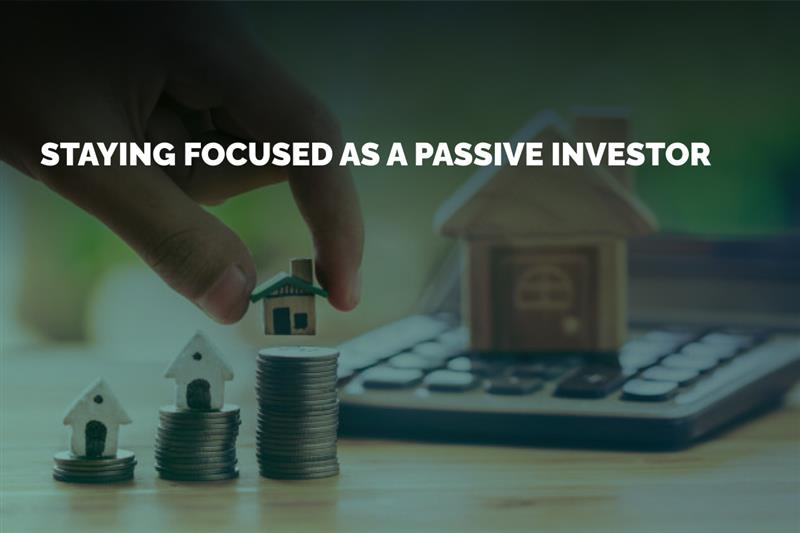When investing in real estate—or any asset—it’s easy to get caught up in numbers, returns, and projections. But what often separates successful investors from those who burn out or make costly mistakes isn’t just financial analysis. It’s emotional discipline. Passive investing requires patience, perspective, and the ability to stay calm when markets, headlines, or personal fears create noise.
Understanding the emotional side of investing is just as important as understanding the financial side. Let’s explore how emotions influence decisions, and how to build the mindset needed for long-term success.
The Emotional Rollercoaster of Investing
Investors often imagine that once they place capital into a deal, the hardest part is over. In reality, the journey is just beginning. You may experience excitement when the investment launches, frustration when early distributions are smaller than expected, or anxiety during economic downturns.
These feelings are natural, but left unchecked, they can lead to impulsive decisions—such as pulling out too early, chasing riskier opportunities, or losing confidence in a proven strategy.
Why Patience Pays
Passive investing is designed to be a long-term wealth-building strategy. Distributions and appreciation compound over years, not weeks. Selling too soon or constantly switching strategies can disrupt your growth and limit overall returns.
Patience doesn’t mean ignoring performance—it means understanding that short-term fluctuations don’t necessarily reflect long-term potential. The investors who reap the greatest rewards are those who trust the process and give their capital time to work.
Avoiding Emotional Traps
Some of the most common pitfalls passive investors face come from emotional reactions rather than poor deal fundamentals:
Comparing returns:
Seeing another investor report higher distributions can spark envy, but every deal has different structures and timelines.
Fear of downturns:
Market corrections are inevitable. Selling in panic often locks in losses instead of allowing recovery.
Chasing trends:
Jumping into the “hot” market or asset class of the moment often leads to overpaying and disappointment.
By recognizing these traps, you can stay grounded and avoid decisions that undermine your long-term success.
Building an Investor Mindset
Developing emotional resilience is a skill. Here are some ways to strengthen it:
Focus on your why:
Clarify your personal goals; financial freedom, retirement security, legacy, etc. and revisit them when doubts creep in.
Trust your due diligence:
If you thoroughly vetted the sponsor, market, and deal upfront, lean on that work when emotions rise.
Diversify:
Spreading investments across different markets and asset classes reduces anxiety tied to any single deal.
Stay educated:
Understanding cycles and metrics gives confidence when headlines create fear.
Final Thought: Emotions Matter as Much as Numbers
Financial models can tell you the potential returns, but your ability to stay disciplined determines whether you actually realize them. The long game of passive investing rewards those who manage not only their capital but also their mindset.
By embracing patience, resisting emotional traps, and focusing on long-term goals, you’ll not only build wealth, you’ll also gain the peace of mind that comes from trusting the process.



